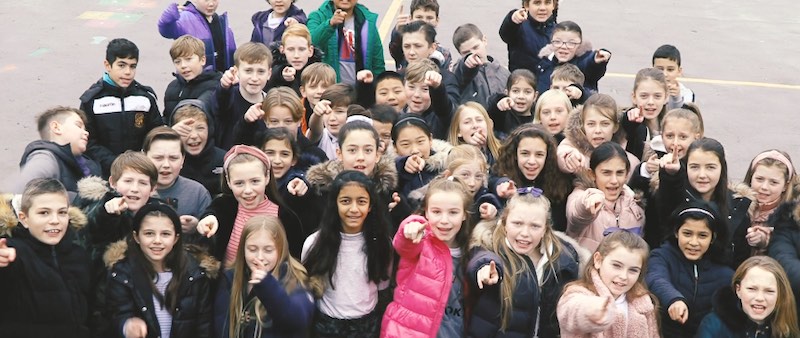Why schools have a part to play in saving the planet
Why teach about sustainability?
Sustainability education can be fun and engaging and more importantly, empowering for children. Encouraging them to take responsibility for their actions enables them to develop their knowledge, skills, values and motives for change and how this impacts their wellbeing and that of their communities and the planet as a whole.
In prioritising sustainability, we recognise the importance we place on ensuring our children have the best futures possible. By highlighting issues such as poverty, climate change and access to health and education, we can educate our children to be an active part of the changes needed for local and global improvement.
By tackling sustainability issues, children employ the essential skills of critical thinking, innovation and problem solving. Take a look at the interview below and be inspired to empower your children and enact change within your local environment.
Interview with David Roberts
LitFilmFest had the opportunity to speak to David Roberts, educator and founder of the Sustainable Schools International Network.
Tim: Welcome to LitFilmFest Live! Today we have a very special guest, hello to David Roberts.
David: Hi Tim, how are you?
Tim: I’m very well! David, you’re actually quite a way away from us at the minute aren’t you? Where are you and what are you doing?
David: I’m currently on the Isles of Scilly, which is the most southern tip of the United Kingdom, and I’ve just finished a three-week journey all the way from Shetland. I’ve been going from environmental project to environmental project to find some of the more positive sustainability stories that there are in the UK. It’s named the ‘Journey of Hope’.

Tim: Wow! So you’re linking lots of sustainability projects together by traveling across several countries?
David: Yes, absolutely. I started in Scotland, in the Shetland Islands, and then through Scotland. Mostly projects related to the ecology of the landscapes and rewilding projects, but also litter projects, a repair shop in Edinburgh, and popped over to Northern Ireland. All sustainable transport, by the way, I’m not driving it in a four by four! I’ve taken boats, trains and buses, and I’ve walked quite a bit as well. So no cars, no planes.
Tim: That’s great! So why should schools be interested in finding out about sustainability projects themselves?
David: We’re actually one of the most nature depleted countries in the world. Green landscape is not really that great for nature, so when you start to have a better understanding of these things. These projects are the most important issues of our time.
At the moment we’re not really connected to that natural system anymore, so we’ve almost removed ourselves from the order of things in nature. But something like COVID brings it home, that we are part of an ecosystem, we are just a cog in the chain. Lockdown was obviously difficult in many ways, but it did allow people to slow down, reconsider and reflect on things that are important.
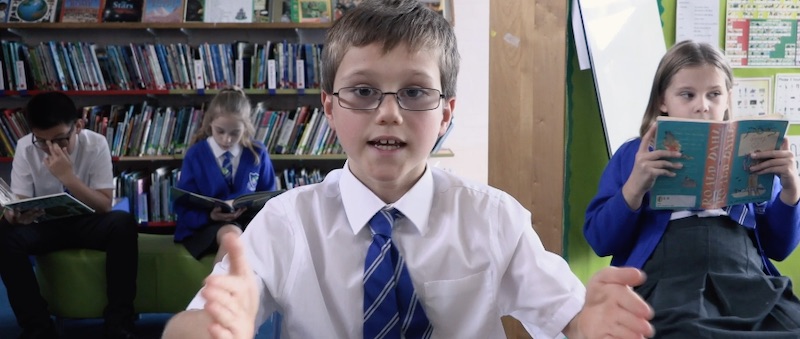
Tim: Why do you think sustainability is something that we should be teaching children about? What impact do you really hope that children should go away with?
David: We can’t overlook the fact that our natural systems are in danger, and that ultimately threatens our survival. The impact you’re looking to make with any project is behaviour change.
That is the key, something impactful enough that makes a child change their own behaviour to become more sustainable. And then, also go back into the home and into their community, and educate people around them; their peers, and change the behaviour there.
Tim: Tell us about some of the projects that you’ve been documenting.
David: On Shetland, the remote islands in the middle of the north sea, you have this image of them being very pristine but they do have a lot of big problems with plastic waste that washes up on the beach. Partly due to its position, and the fact that it gets battered by north sea storms every winter.
They’ve organised the UK’s most successful litter pickup scheme; 20% of Shetland every year goes out and picks up rubbish from the beach. 20%! If 20% of every population or community was engaged, it would have such an impact!
A lot of the waste on Shetland is discarded fishing nets and boxes that the fishermen don’t need anymore. So a lot of the waste is coming from some of the grandparents of the children who are on the island.
The children are going back to the house and saying “Granddad, please don’t throw these plastic bits of fishing net over overboard any more.” So it is a project that has really engaged the community.
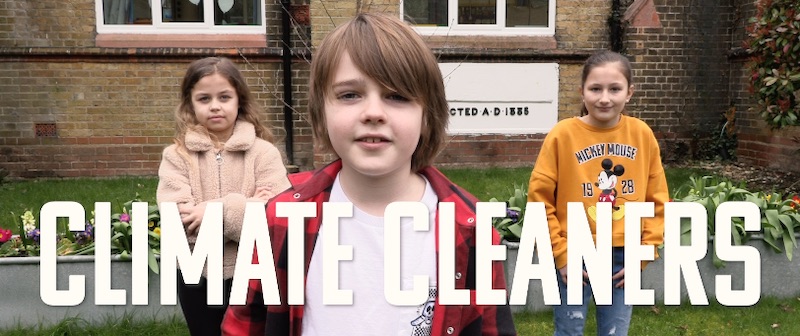
Tim: I suppose that goes through the schools then, to actually have a real life impact on the community through education?
David: Yes, the scheme goes right from primary school to secondary school, to when they’re in college and university. If they’re on the islands and then into their later life. I spoke to many people on the islands and they all know ‘‘Da Voar Redd Up’ which is the big spring cleanup in the local language. They’ve all worked on it in primary schools and the great thing is that they all do it together.
I think that’s one of the things that’s missing in sustainability projects; I think there needs to be a lot more collaboration, connection and linking up together.
Tim: This is all very well and good David, but how do teachers have time to teach about eco projects? Spellings need to be done, PE comes in or MFL. Is this something that has to be taught once in a blue moon or it should be every week?
David: I think I would flip that question around to you Tim, and ask do we have time to NOT think about eco projects. I’ve seen schools that really do put the environment at the heart of everything they do, and you can either look at it as fitting the environment into the national curriculum or fitting the national curriculum into the environment.
There’s a school that I visited a few days ago called Dama’s first school in Dorset and they’ve moved away from recycling and they are they’ve banned single-use plastic. They had a pushback from some parents initially, but everyone’s got used to it, and now they’ve won awards. Parents will ultimately respect that in the community, winning awards and getting articles and newspapers!
So it can be done, you just need someone in the school to push for it.
Quick-Fire Write challenge!
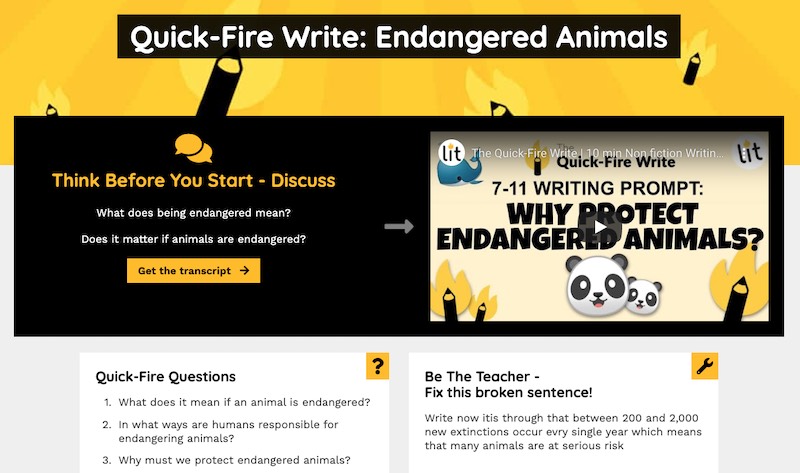
If you’d like to think more about sustainability with your class, check out this Quick-Fire Write activity!
Tim: Do you have any ideas for quick and easy sustainability projects that some teachers could run with?
David: One easy project that ticks quite a few boxes and also really brings that reconnection with nature home is learning all the native trees. Native trees are the gateway to the natural world around us. Oak trees, hazel trees, birch trees. Once children start to get an understanding of the natural things that are around them, they’ll start to develop a curiosity and that will really start to get them to think about ecosystems and how we are a part of those ecosystems.
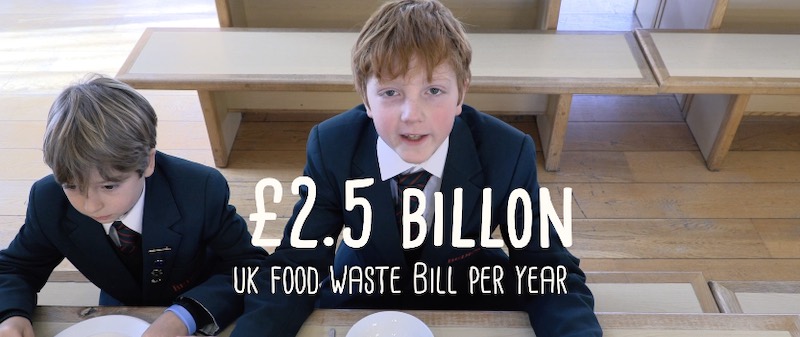
Tim: Are there any whole school projects that you’ve seen?
David: Looking at the food waste at your school. Where is it going? There are ways you can deal with that food waste, and then you can get into all sorts of measurements in terms of how much compost you’re creating, or you can do experimentation; have two different types of compost bins and figure out which one is producing faster.
Planting woods is also a fantastic project, because you can measure everything. You’re bringing maths, you’re bringing science, you can have written impact reports.
Tim: Finally, is there a website for the Sustainable Schools International Network?
David: Yes, you can find out more information via journeyofhope.co. If anyone’s interested they can sign up for the resources on the website for free, and I will be linking schools with these experts who have been there and done it and been successful.
Tim: Great David, thank you very much. Take care!
David: Thank you, Tim.
